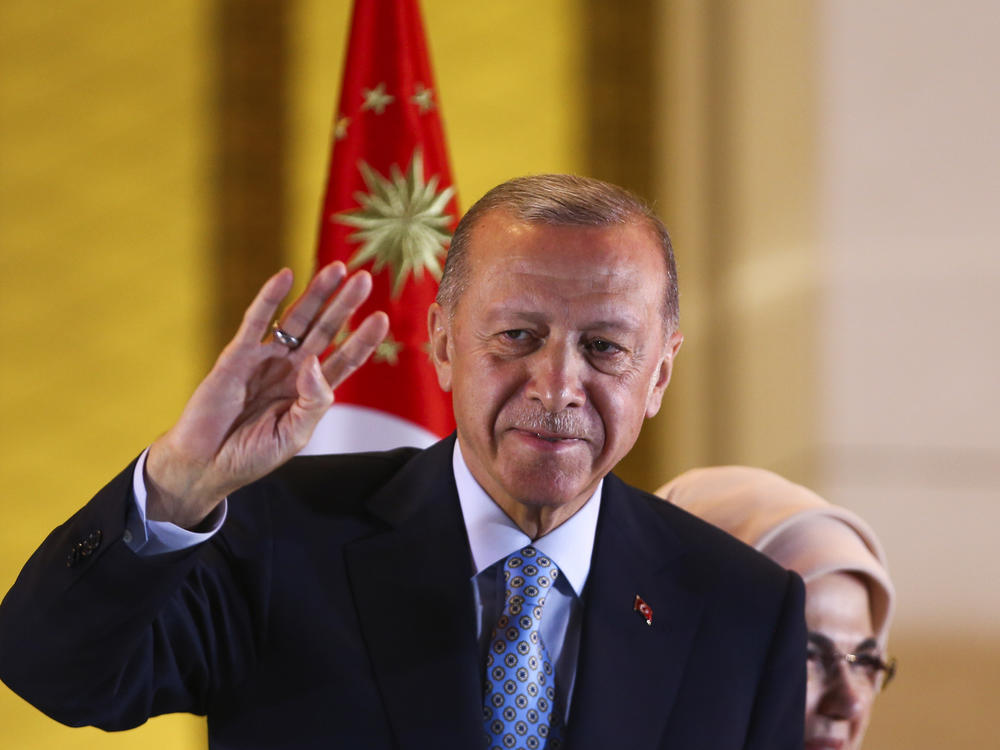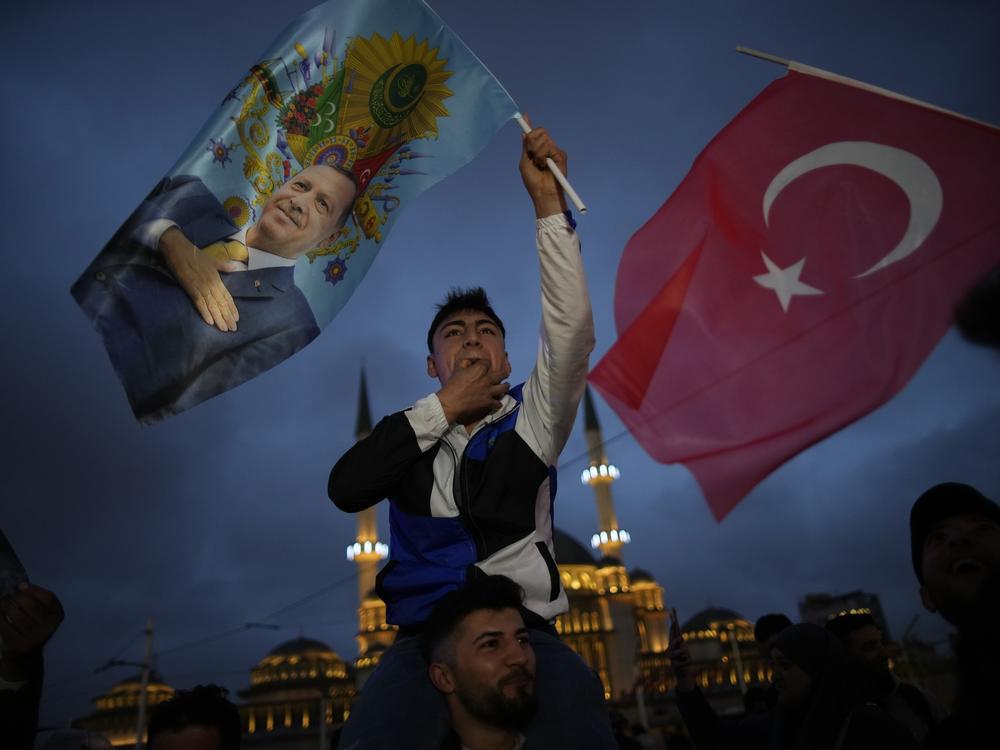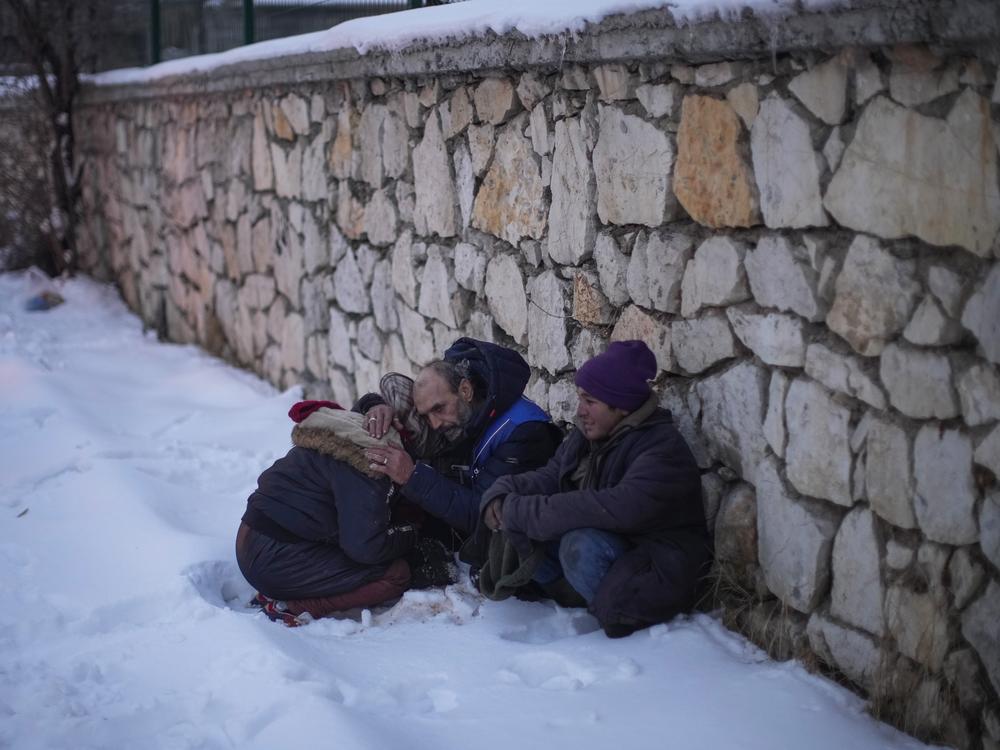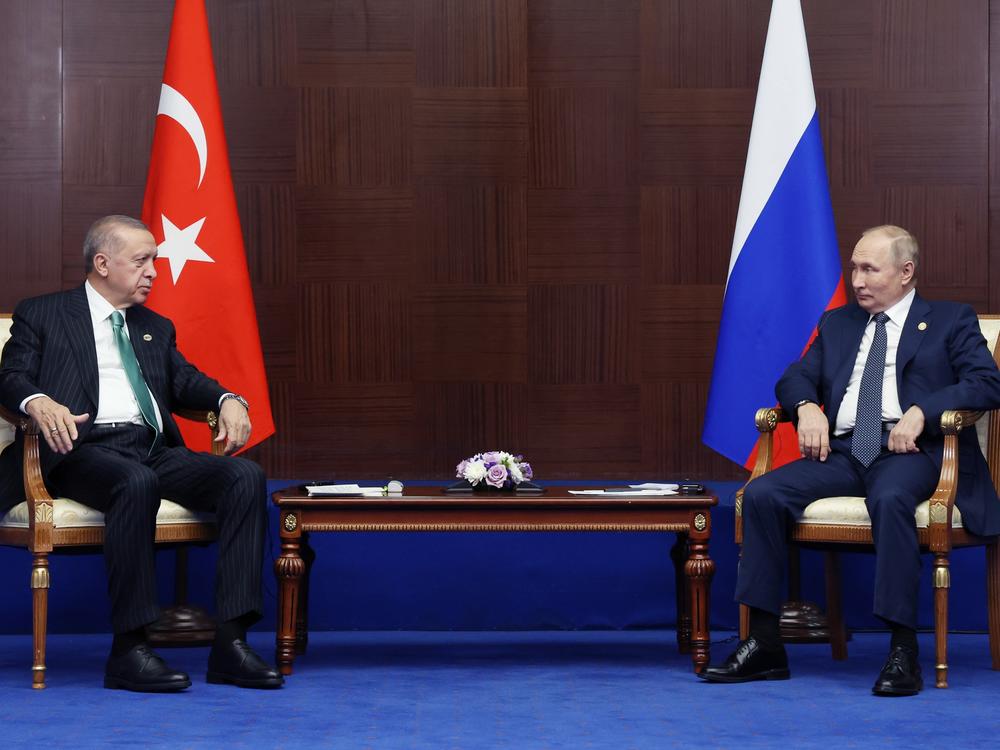Section Branding
Header Content
Erdogan's victory could be fateful for Turkey's democracy and role in the world
Primary Content
ISTANBUL, Turkey – Turkish President Recep Tayyip Erdogan's two-decades of dominance over the country's politics will continue after a win in Sunday's election. Known for his combative populism and for reshaping the country's laws to consolidate his power, Erdogan now looks ahead to another five-year term and ongoing concerns about the country's direction and democracy.
Erdogan won 52.14% of the vote while 47.86% went for his opponent Kemal Kilicdaroglu, according to Ahmet Yener, the head of Turkey's Supreme Election Council.
"It is not only us who won, it is Turkey," Erdogan said, in a victory speech at the presidential palace in Ankara. "It is our nation that won with all of its elements. It is our democracy."
Now the focus is on the state of that democracy and the country.
Turkey has played an increasingly robust and sometimes contentious role on the global stage as a key NATO member and major military power in the Black Sea.
At home, he still faces soaring inflation, a highly-criticized, sluggish response to massive earthquakes in February and concerns that he's creating one-man rule.
Erdogan won votes by hyping threats to the country's stability
Erdogan, 69, led a divisive campaign in which he tapped into the public's fear of instability following a 2016 coup attempt and multiple conflicts. He accused his opponent of having ties to Kurdish militants, who conduct attacks against Turkish security forces in the southeast. He reminded people of the ongoing civil war next door in Syria. He employed religious, nationalist rhetoric in promising to make the country a global military and industrial power – even working a Turkish-built electric car into his campaign.
That apparently helped counter widespread dissatisfaction with an economic crisis that has seen high inflation and a weakened currency — apparently aggravated by Erdogan's emphasis on maintaining low-interest rates. And the government's poor building code enforcement and slow response to February's earthquakes are still blamed by many for the high death toll — some 50,000 lives lost in Turkey.
Erdogan still benefits from memories of previous governments' elitism
Two decades ago, Erdogan came into office as a champion of working-class people and religious conservatives who felt neglected and repressed by previous secular governments. For many years, women who wore headscarves were banned from attending schools or working in jobs. Erdogan changed those laws and to this day many people, conservative women in particular, see him as someone who looks after them.
At a polling station in Istanbul on Sunday, a mother and daughter cast their votes for Erdogan.
"I don't really think he will make anything better, but I have other reasons. I think he is more respectful of my choices and my freedom," said the mother, Sabiha Dogan, meaning the headscarves she and her daughter wore.
As they entered the polling station, two women who supported the opposition made derogatory comments about their headscarves. Dogan and her daughter Hulya, felt validated in their choice of candidate.
"They only want democracy for themselves and not everyone, they won't respect our freedoms," said 24-year-old Hulya.
The survival of Turkish democracy is still at stake
For the millions who voted against him, Erdogan is seen as an authoritarian. He has stacked the judiciary, monopolizes the media and jails perceived opponents — including journalists and critics on social media. He's accused of allowing corruption to flourish, leading to shoddy, unregulated construction that collapsed in the quakes. He's replaced opposition mayors even though they won local elections.
This election was hardly a fair fight. Erdogan has near-total control of Turkey's broadcast media. And while Erdogan made frequent and lengthy appearances on TV, his challenger, Kilicdaroglu, had to make do with social media and YouTube to get his message across. Erdogan also took advantage of government resources to hand out benefits to millions of citizens and raised the minimum wage several times in the last year.
But the election did seem to energize a surge in the country's democratic culture. Turnout was high — 84% — and many Turks volunteered as citizen witnesses to ensure the safety of ballots. Many vow to continue efforts to push back on any abuses of power.
There are concerns that Erdogan will continue amassing one-man power. And many women and LGBTQ activists worry their freedoms will further decline in the next five years. During his campaign, Erdogan made several comments attacking Turkey's LGBTQ community.
Rights organizations and activists are calling for unity to protect civil freedoms.
Some Syrian refugees see Erdogan's win as cause for relief
Many of Turkey's nearly 4 million Syrian refugees were among those celebrating Erdogan's win. A decade ago he oversaw an open-door policy for refugees escaping war in neighboring Syria — though life for many of the refugees has still been difficult.
As the Turkish economy faltered, many began to see refugees as a burden. Opposition politicians, including Kilicdaroglu, scapegoated refugees and Erdogan's refugee policy, leading to a rise in discrimination and hateful attacks. Kilicdaroglu ran an openly anti-refugee campaign. His promise to send all Syrians back to Syria was one of the most repeated slogans.
Erdogan also gave in to public pressure on the refugee issue. While he condemned Kilicdaroglu for his inflammatory language, the Turkish government has deported hundreds of Syrian men and Erdogan said he would build housing in Turkish controlled parts of Northeastern Syria to "resettle" 1 million refugees voluntarily. But many refugees still see him as being more sympathetic to them.
Erdogan will probably keep playing to East and West in international issues
Turkey is in NATO, sits close to the wars in Ukraine and Syria and often frustrates western powers in how it negotiates those conflicts.
Erdogan has maintained close ties with Russia and refused to participate in Western sanctions, while also supplying weapons to Ukraine. Analysts say Erdogan may eventually approve Sweden's membership to NATO — which is important to the west in order to counter Russia — in exchange for F16 fighter planes from the United States. He showed Turkey's usefulness to the West in helping broker a deal with the United Nations between Ukraine and Russia, to allow Ukrainian grain exports through a Russian blockade.
Meanwhile, he's also expanded the Turkish military's reach and control over areas in northern Syria — a concern to Kurdish groups allied with the U.S. in the ongoing fight against ISIS remnants.
The next five years will likely see a continuation of Erdogan walking a fine line and his transactional approach to foreign policy.
"There's absolutely no reason to think that [Erdogan] would reverse course or soften his approach," said political analyst Selim Koru.
"There is sort of a Western bloc that is broadly geopolitically aligned, and the Bloc wanted Turkey to be in its camp. Turkey essentially has said no, it wants its own camp and isn't interested in participating in any kind of geopolitical alignment where it isn't the boss," said Koru.
Copyright 2023 NPR. To see more, visit https://www.npr.org.
Bottom Content




